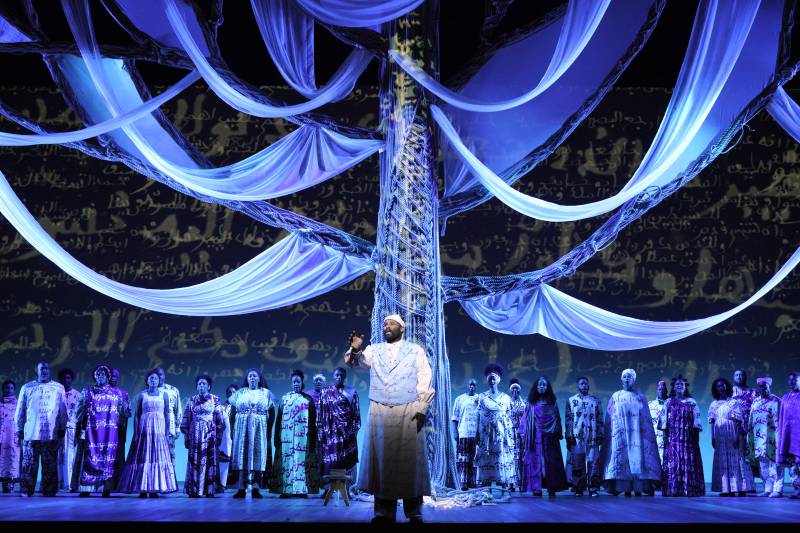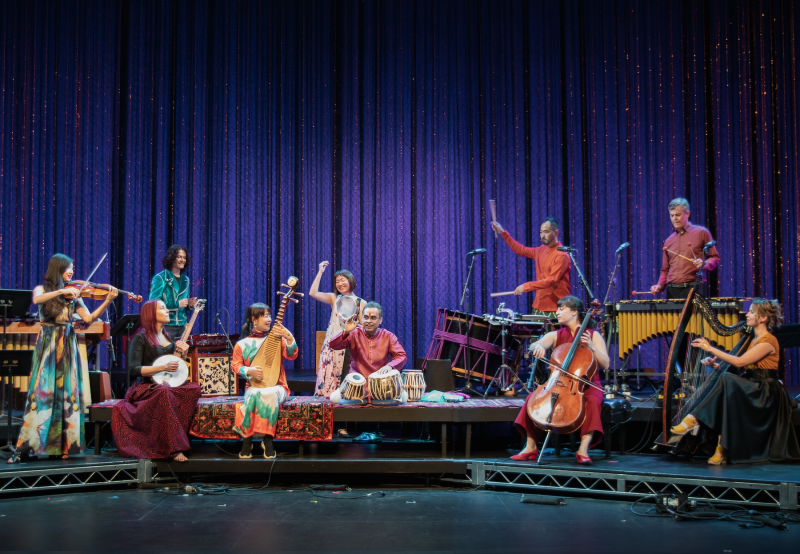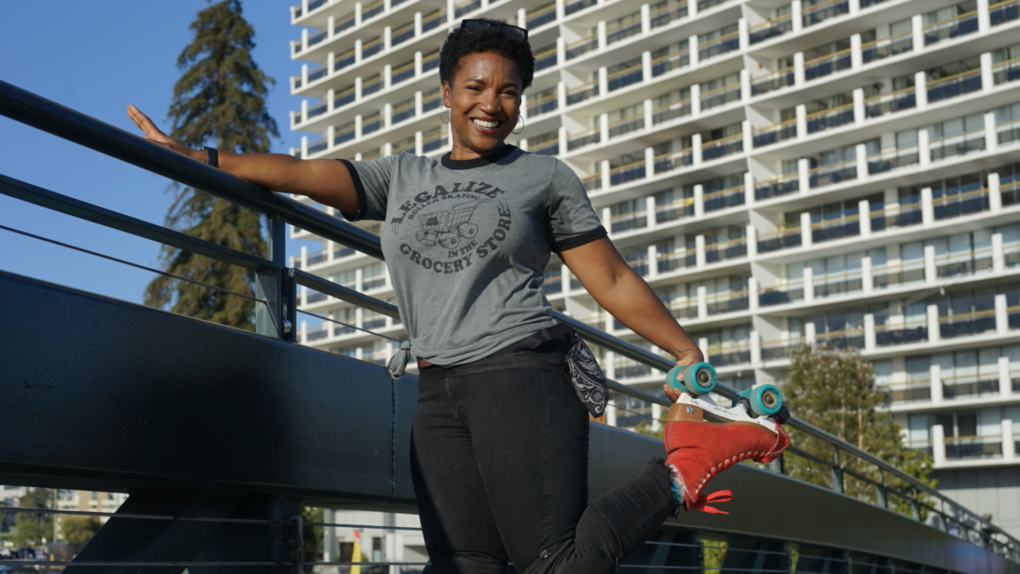
Rhiannon Giddens has long focused on stories neglected, ignored and devalued in American culture. But the past year has made the musician’s gift for those narratives abundantly clear, and to a powerful effect: What began as a campaign to rewrite the narrative of American roots music in her longtime band, the Grammy Award-winning Carolina Chocolate Drops, has expanded by leaps and bounds, encompassing just about every influx of people that have shaped the so-called “manifest destiny” of the United States.
It’s been an extraordinary journey for the acclaimed singer, fiddler, banjo player and composer. And many of its paths converge this month in the Bay Area, starting at the San Francisco Opera, which presents Giddens’ 2023 Pulitzer Prize-winning Omar over six performances Nov. 5–22. Originally co-produced by Carolina Performing Arts at the University of North Carolina and Spoleto Festival USA, where the opera premiered last year, Omar was inspired by the singular 1831 autobiography A Muslim American Slave: The Life of Omar Ibn Said.
Raised in a West African Islamic state in what is now Senegal, kidnapped and sold into servitude in South Carolina, Ibn Said wrote about his experience in Arabic, a work that languished in obscurity until the University of Wisconsin Press published Ala Alryyes’ English translation in 2011. San Francisco Opera and six other companies commissioned the two-act opera, which Giddens co-composed with Michael Abels (she also wrote the libretto). Unfamiliar with Ibn Said’s saga before she received the commission, Giddens plunged into an assignment that took her far from her comfort zone.
p
“I was immediately taken with his story and furious that I’d never heard it before,” says Giddens, 46, on a recent video call. “Michael Ables was the perfect collaborator to tell Omar’s story. I know what I can do and what I can’t do, and there were a lot of leaps of imagination. The biography is very short. Omar is telling a lot, but you have to be open to different ways of storytelling. He finds himself in a completely alien world, and is desperately trying to maintain ties to African Muslim identity.”






